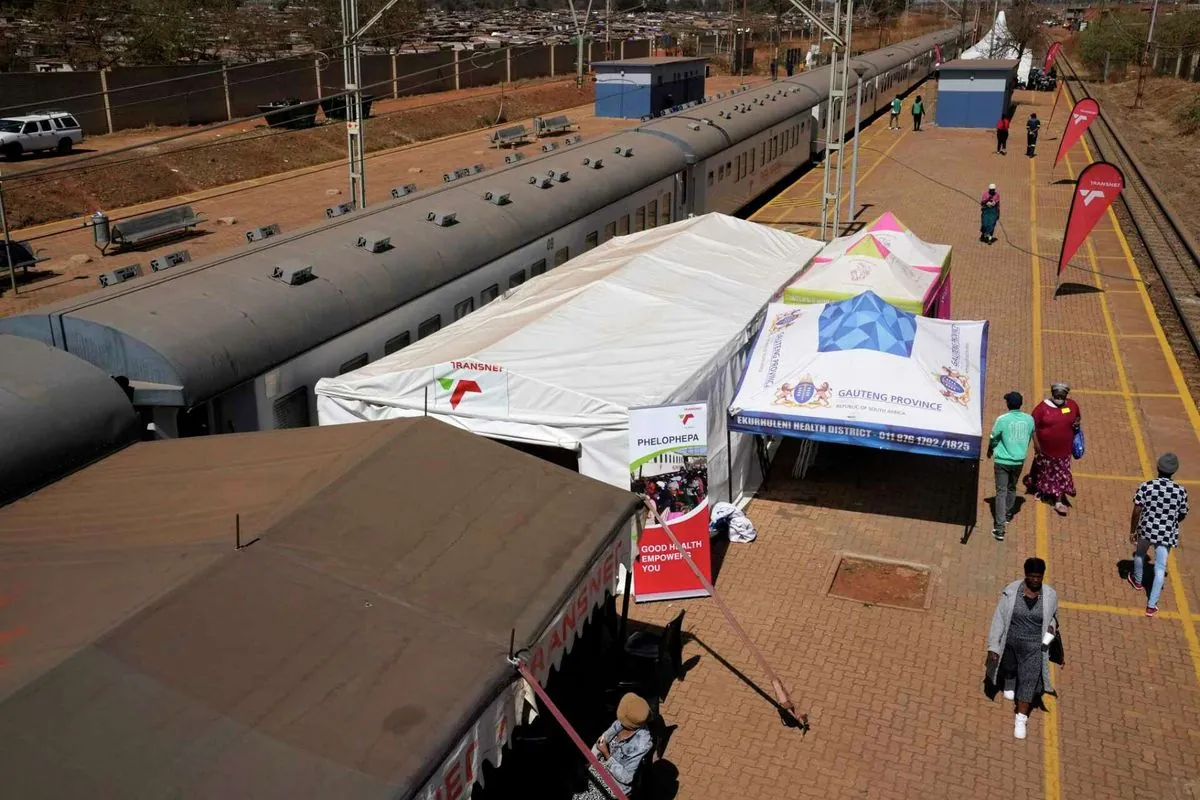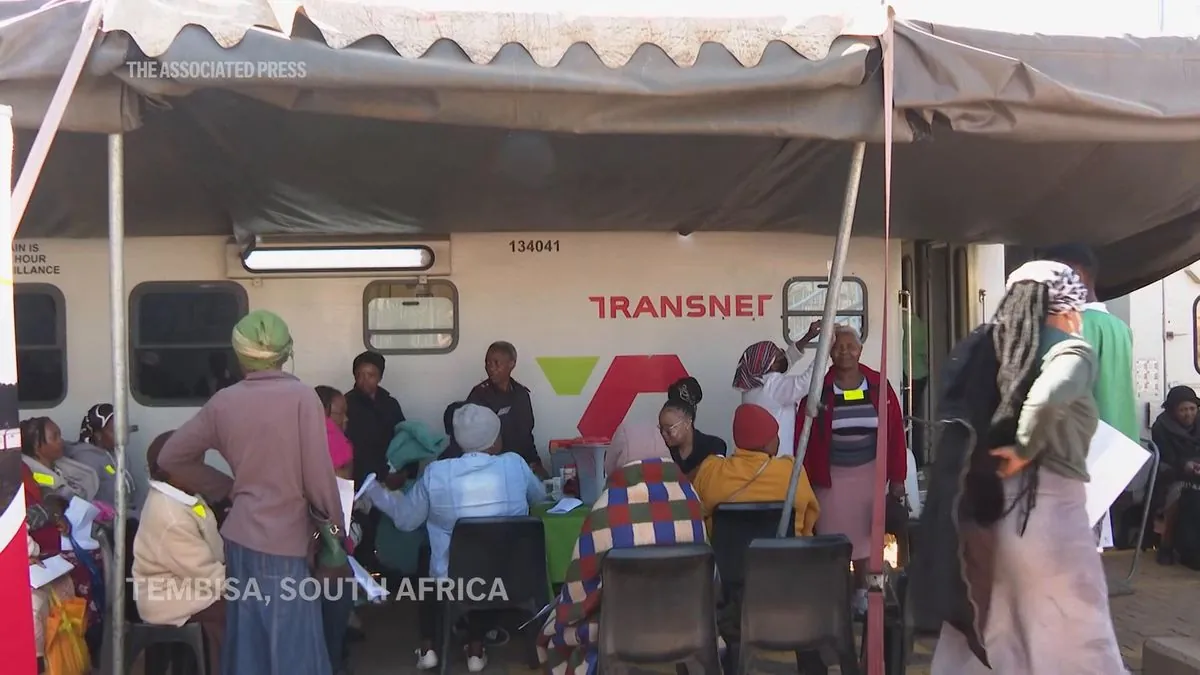South Africa's Healthcare on Rails: The Phelophepa Train's 30-Year Journey
South Africa's Phelophepa train, a mobile health facility, has been providing free medical care to underserved communities for 30 years. This unique service contrasts with the country's struggling public healthcare system.

In South Africa, a nation grappling with significant healthcare challenges, an innovative solution has been rolling across the country for three decades. The Phelophepa train, a mobile health facility, has been providing essential medical services to underserved communities since 1994, coinciding with the end of apartheid.
Thethiwe Mahlangu, a resident of a bustling township, recently sought care from this unique healthcare provider. Instead of visiting her local clinic, she made her way to the train station, where the Phelophepa - meaning "good, clean health" in Sesotho - was stationed.
This mobile clinic, operated by the Transnet Foundation, has grown from a modest three-carriage operation to two 16-carriage trains. It now serves approximately 375,000 people annually, offering a range of services including primary healthcare, optometry, and dental care.
The Phelophepa train's significance becomes clear when considering South Africa's healthcare landscape. The country's public health system, relied upon by about 84% of the population, is often overwhelmed and underfunded. This situation reflects the broader inequality in South Africa, which has one of the highest income inequality rates globally, with a Gini coefficient of 63 in 2022.
"The major metros are really struggling."
In an attempt to address these disparities, President Cyril Ramaphosa signed the National Health Insurance Act in May 2024. This legislation aims to provide funding for millions of uninsured South Africans to access private sector healthcare. However, the act has been met with skepticism due to concerns about implementation costs and potential for corruption.
The challenges faced by local clinics are stark. Patients like Mahlangu report long wait times, medicine shortages, and poor treatment. "There we are not treated well," she explained. "We are made to sit in the sun for long periods."
While the Phelophepa train offers a welcome respite, it is not a comprehensive solution to South Africa's healthcare problems. The country faces a significant shortage of healthcare professionals, with an estimated 1.3 doctors per 1,000 people. Additionally, South Africa grapples with a high burden of diseases, including HIV/AIDS, tuberculosis, and non-communicable diseases.
Public health expert Alex van den Heever points out that despite substantial increases in healthcare budgets since 1994, widespread corruption has undermined the public sector's performance. The health department's budget in Gauteng province, which includes Pretoria and Johannesburg, has grown from 6 billion rand in 2000 to 65 billion rand in 2024.

Despite these challenges, the Phelophepa train continues to make a positive impact. Patients like Mahlangu and Jane Mabuza express satisfaction with the services provided, highlighting the train's efficiency and comprehensive care.
As South Africa continues to navigate its complex healthcare landscape, the Phelophepa train stands as a symbol of hope and innovation. While it cannot solve all of the country's healthcare issues, it provides a vital service to those who might otherwise go without care, embodying the spirit of progress in post-apartheid South Africa.


































